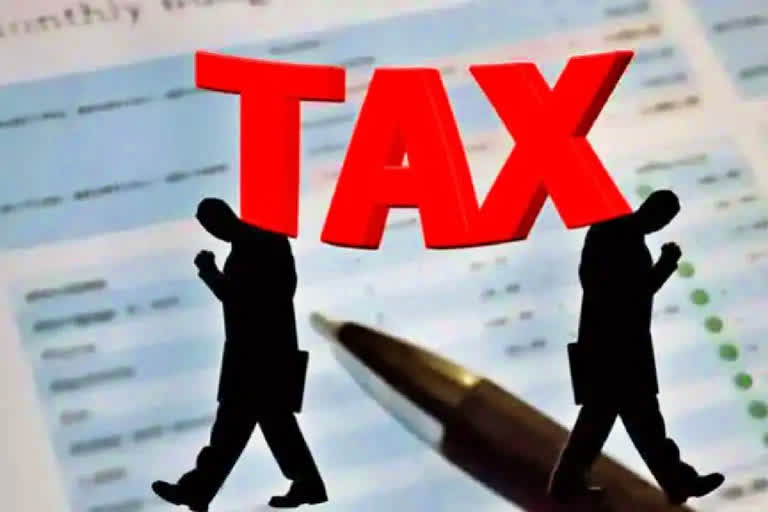New Delhi: As the year 2022 draws to a close, a look at the Union Government’s finances in the first eight months of the current fiscal (April-November 2022) suggests improved tax collection, in fact much better than the budget projections. Although there is an improvement in revenue collection in the current fiscal, the Union government’s latest official data also shows that the net tax-revenue growth in the first eight months has declined to 4.78%, this was primarily due to sharing of higher taxes with state governments.
According to the latest official data, all three major revenue sources, Corporate tax, Income tax and GST collections till November 2022 have been better than the budgeted growth. On the other hand, Customs Duty and Excise Duty collections have been on the lower side than their budget projections. In the case of Customs Duty collections, it has been marginally down to 12.4% till November as against the budget growth of 12.7%. However, the decline in excise duty collections, which was -20.9% till November 2022, has been sharper than the budgeted decline -15.0%.
According to Devendra Pant, Chief Economist of India Ratings and Research, the revenue estimates of FY23 Budget were conservative and underestimate due to unrealistic and lower nominal GDP growth assumptions in FY23 budget.
“Our contention is now getting reflected in the higher tax revenue realization,” Pant told ETV Bharat. Pant says higher tax revenue growth has now started reflecting in expenditure growth also.
“Revenue expenditure in the first eight months of FY23 has grown 10.8% as against a budgeted growth of 0.9%, non-interest revenue expenditure, which was budgeted to decline by 4.2% has grown 8.3%,” he said.
Mega push to infrastructure development
The data showed that the growth in the capital expenditure has remained strong at 63.4% as against the budget projection of 24.5%. Loan disbursed for capital expenditure grew at 124.2% and supported capex growth.
Increased revenue sharing with states
Despite revenue buoyancy, the net tax-revenue growth for the Union government in the first eight months has declined to 4.78% due to increased sharing of revenue by the Union government.
Generally, this revenue adjustment between the Centre and States used to take place in the month of February or March. However, in FY23, the union government has already increased states’ share in central taxes twice – in August and November.
In FY22 excess transfer, which is primarily attributed to higher revenue collection compared to the budget estimate, took place in November 2021, January 2022 and March 2022. This was due to better than-budgeted tax collection performance in FY23 (till November).
The data shows that the gross tax revenue grew 15.48% till November 2022 as against the budgeted growth of 9.6%. Union government has collected 68.46% of budgeted net tax revenue till November 2022, this proportion is highest based on monthly net tax revenue collections data from April 1997.
The fiscal deficit during April-November 2022 was 58.88% of the budgeted estimate, the second lowest after FY22 (41.87%) since FY12. Higher transfer to states in the form of share in central taxes and slowdown in gross tax revenue has resulted in government cash balance with RBI declining to 1.55 trillion rupees at the end of November 2022 from INR2.24 trillion at end-October 2022. Additionally, it has also borrowed 9.63 trillion rupees from the domestic market and Rs 149.75 billion externally.
Devendra Pant says strong revenue collection growth is likely to slow down in the rest of FY23 (December to February 2023 ), due to a combination of a variety of factors, including lower real growth, and a decline in inflation in the second half of FY23.
“However, despite this, financing additional expenditure due to higher food and fertiliser subsidy or any other unforeseen expenditure is unlikely to destabilise budgetary fiscal arithmetic,” Devendra Pant added.



